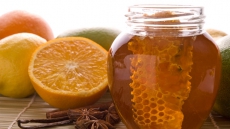The sweet and succulent chikoo or Sapota fruit, a popular ingredient for desserts, could well be the answer to halt cancer from spreading, according to a study by Indian scientists.
Researchers have now shown methanolic (alcoholic) extracts of the whole fruit possess certain active phytochemicals (plant-derived compounds) that can trigger a sequence of orchestrated events in tumour cells leading to their death (a process called apoptosis).
"There was a preliminary study which had used two of the phytochemicals isolated from Sapota fruit on cancer cell lines. Ours is the first study using whole fruit methanolic extracts which explores anti-cancer properties of the same on different cancer cell lines and on animal models.
"Our results indicate that inclusion of Sapota fruit in our daily diet may protect from genesis and progression of cancer," Sathees C. Raghavan, associate professor at the department of Biochemistry, IISc, told IANS in an email interaction.
The collaborative study was conducted by scientists at the Indian Institute of Science (IISc), Bangalore, and the Institute of Bioinformatics and Applied Biotechnology, Bangalore.
It was published in August in Nature Publishing Group's journal Scientific Reports.
One million new cancer cases are reported in India every year and the figure is set to double in 20 years, according to the International Agency for Research on Cancer.
Out of the estimated eight million people globally who died of cancer in 2012, nearly 700,000 deaths were in India.
As the disturbing figures rise on one hand, there is also, on the other end, mounting evidences of plant derived dietary substances as "suitable candidates for treating various types of cancers due to their broad chemical diversity".
Raghavan explained: "We have tested its effect on cancer cells derived from different cancers such as leukemia, breast, ovarian and lung carcinomas. We found that it induces apoptosis in all types of cancers with varying efficiencies.
"We also found it slowed tumour progression in mice. Tumor containing mice that were treated with Sapota extracts lived three times longer than untreated mice."
In fact not only did the extract "significantly decrease" the tumour load in mice induced with breast cancer, in 50 percent of the mice examined, Sapota extract also led to a "three-fold increase in the life span compared to untreated tumour mice".
"However, whether Sapota has cancer preventive effects needs to be tested. There are no side effects detected yet," he said.
Raghavan's group included Mrinal Srivastava, Mahesh Hegde, Kishore K. Chiruvella and Souvari Bhattacharya. It worked jointly with Bibha Choudhary and Jinsha Koroth at the Institute of Bioinformatics and Applied Biotechnology.
The next step, he said, is pinpointing the principal compound or compounds leading to Sapota's anti-cancer effects.
"The advantage lies in the fact that once the active compound or compounds are identified, they not only can be synthesized in bulk in laboratory but also can be modified further to increase the potency. Clinical trials may follow after identification and optimisation of the purified component(s)," said Srivastava, the first author of the paper.
A tropical fruit grown and consumed extensively in several countries, including India and Mexico, Sapota (Manilkara zapota) is packed with dietary fibre, minerals, vitamins and high antioxidant properties.





